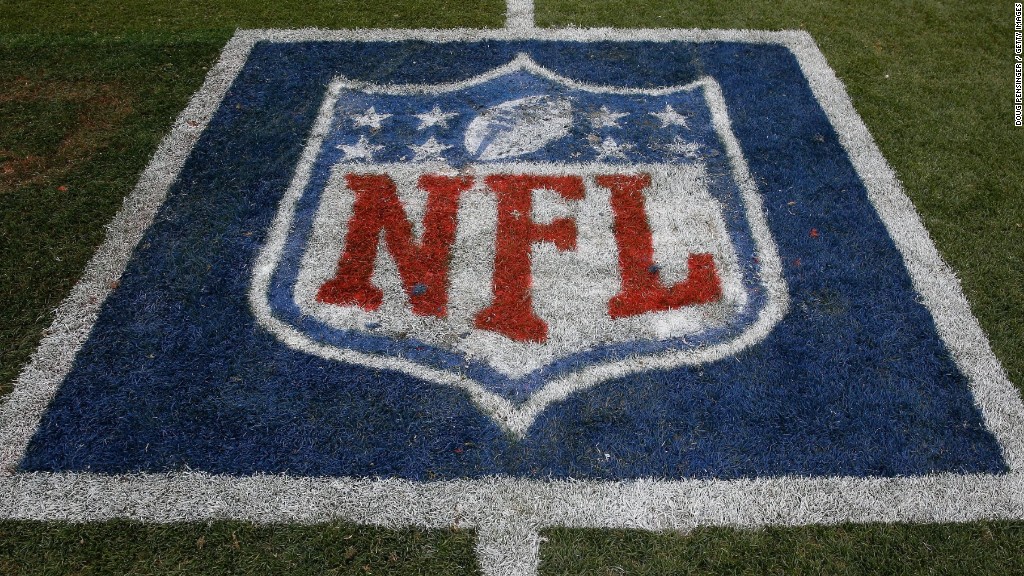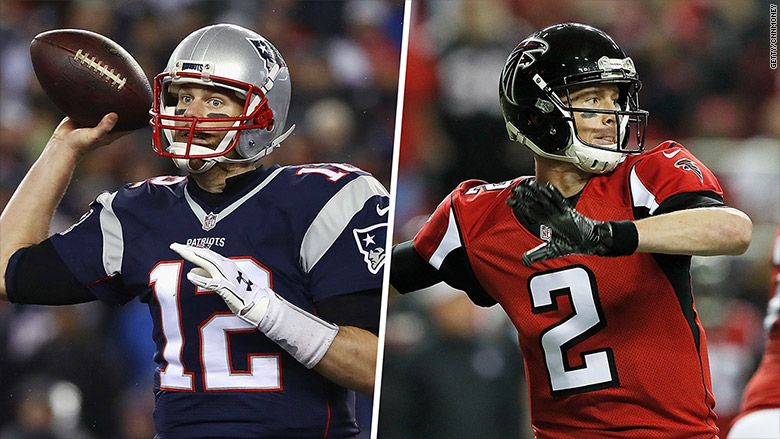
Imagine this: It's fourth and two, the Atlanta Falcons are on their own 45-yard line in this weekend's Super Bowl. It's late in the game, and the New England Patriots are up six. Should the Falcons go for it to keep their drive alive or give the ball back to Tom Brady and hope for a stop?
If this scenario does occur on Sunday, odds are you'll hear about aggressiveness versus "playing it safe" -- and that you won't hear anything about the odds.
But some people watching at home will know some facts the announcers either don't know or aren't using. And they'll know, too, that NFL head coaches tend to be far more conservative in 4th down and two-point conversion calls than they should be. Because they'll be looking at Twitter, where the New York Times' 4th Down Bot quickly calculates a number of factors in order to determine how each possible decision the team could make would affect its chance of winning the game and spits out its recommendation.
NFL broadcasts are incredibly complicated productions representing billions of dollars worth of investment. By comparison, it's relatively uncomplicated to bring in some simple statistical analysis -- or just to have someone monitoring a single Twitter account. And the NFL and its TV partners have been willing to embrace new technologies and ideas in their programming in the past, arguably even more so than other professional leagues. So why are so many announcers, like some of the coaches they're talking about, seemingly stuck behind the times? It's not a single, simple answer.
ESPN's Sean McDonough, who does play-by-play on "Monday Night Football," says many different factors are at work during any given game and any given play call.
Related: Super Bowl LI ticket prices spike after early slump
"There's a lot of different variables at work," McDonough told CNN. "Well, they're the best team in the league in going for it on fourth down, then maybe that's meaningful, but so much of it depends on who they played and what those situations are and what the yardages were when they went for it, so I think stats can be a part of it, but not the overriding part of it."
McDonough, who called last weekend's Pro Bowl, added that he's not necessarily "pro or anti-analytics" but said he believes that as an announcer he has have to evaluate each statistic and data point individually on its own merits, and that doing so requires context that he may not have time to explain.
Cynthia Frelund, NFL Network's first analytics expert, says one of the key factors is the way the game is watched and called. The announcing of baseball, which has included data both on the field and in the booth for decades, is weighted more towards what will or could happen, while the NFL's telecasts "are more focused on post" -- that is, what just happened.
And even if broadcasters did start making time for analytics, they'd still need someone who's good on TV to break it all down.

"It has to be someone who really, really cares a lot about analytics," Frelund said. "They need time to tell the story right because statistics can be tongue tying."
There is some precedent for bringing on experts like this: Fox, for instance, relies on former NFL Vice President of Officiating Mike Pereira to explain complicated rules and penalty calls to both announcers and viewers.
So why don't people like Frelund show up on air every single Sunday?
"Would you like to call my agent?" Frelund laughed.
Yet, there's big benefits in a NFL telecast finding ways to present data in a way that's interesting to the casual fan. In the same way that it was to put a digital yellow first down line on the field in the late 1990s, analytics can make for good TV and better storytelling while at the same time teaching the X's and O's of football.
"In general, part of the reason [to include analytics] is to demystify play calling and demystify some of the decisions and shed some light on what good decision-making looks like in football and why that is," Kevin Quealy, a deputy editor at the New York Times' The Upshot, told CNN.
Related: Super Bowl LI will be the first we can watch in virtual reality
Quealy, who was also one of the creators of the 4th Down Bot, said he also thinks that broadcasters can get an edge over their competitors by including more and better data.
"Any time a professional broadcast can make you understand the sport better, any professional broadcaster would tell you that's a win for the viewer," he said. "Professional sports are very complex and a commentator's job is help explain that complexity to you, so any time a commentator can make the game more easily understood for a normal person, which includes me, by using analytics I think there's no way you can't say that's not a win for your viewer and a competitive interest for your broadcast."
So while it may not happen on Sunday, during some Super Bowl in the near future we may be hearing announcers saying coaches need to get more aggressive -- and doing it not because their gut told them, but because they're looking at something like the 4th Down Bot for help.
"We'd love it," Quealy said. "Especially if they paid us a lot of money for it."


